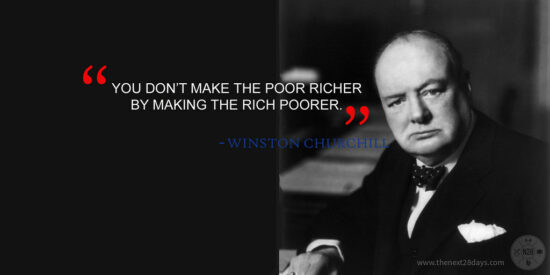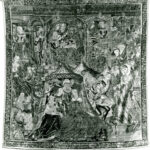Winston Churchill, born on November 30, 1874, in Woodstock, Oxfordshire, was a British statesman, writer, and orator who is widely regarded as one of the greatest political leaders of the 20th century. He played a pivotal role in shaping the course of history during World War II and was known for his indomitable spirit, inspiring speeches, and unwavering determination. This detailed biography will delve into the life and achievements of Winston Churchill.
Churchill was born into a prestigious family. His father, Lord Randolph Churchill, was a prominent politician, and his mother, Jennie Jerome, was an American socialite. From an early age, Churchill displayed intelligence and an interest in history and literature. He attended the prestigious Harrow School and later went on to study at the Royal Military College, Sandhurst.
Churchill embarked on a military career and served in various campaigns, including the Battle of Omdurman in Sudan and the Second Boer War in South Africa. It was during his time as a war correspondent for the Morning Post that he gained fame for his daring escape from a Boer prison camp, which further added to his reputation as a courageous and resourceful leader.
Entering politics in the early 20th century, Churchill quickly rose through the ranks of the Conservative Party. He held numerous high-level positions, including President of the Board of Trade, Home Secretary, and First Lord of the Admiralty. As First Lord of the Admiralty, he championed naval expansion and modernization, recognizing the importance of a strong navy in maintaining Britain’s global power and security.
Churchill’s political career, however, faced setbacks. He was blamed for the disastrous Gallipoli Campaign during World War I, which led to his resignation from the Admiralty. He subsequently served as a lieutenant colonel on the Western Front and witnessed the horrors of trench warfare firsthand. These experiences deepened his understanding of the devastating impact of war.
In the interwar years, Churchill continued to voice his concerns about the growing threat of Nazi Germany and the need for Britain to rearm. His warnings about Hitler and the rise of fascism were often met with skepticism and opposition. Despite facing political isolation, Churchill persisted in urging the government to prepare for war, earning him a reputation as a lone voice of reason.
With the outbreak of World War II in 1939, Churchill’s leadership qualities came to the fore. Following the resignation of Prime Minister Neville Chamberlain, Churchill was appointed as Prime Minister on May 10, 1940. He rallied the British people with his powerful speeches, declaring that Britain would never surrender to Nazi aggression. His famous “We shall fight on the beaches” speech galvanized the nation and symbolized their determination to resist.
Throughout the war, Churchill provided unwavering leadership, inspiring the British population and forging strong alliances with other nations, most notably the United States and the Soviet Union. His close relationship with U.S. President Franklin D. Roosevelt was instrumental in securing American support for the war effort. Together, they formulated strategies to defeat Hitler and chart the course of the conflict.
Churchill’s leadership during World War II was marked by his strategic acumen and his ability to make tough decisions. He played a crucial role in shaping military operations, such as the planning of the D-Day invasion, and in coordinating the Allied forces. His steady resolve and unyielding determination became synonymous with the British spirit of resilience.
After the war, Churchill’s political career continued, although he faced electoral defeat in 1945. He returned to power as Prime Minister in 1951 and focused on rebuilding the country and maintaining its global standing during the early years of the Cold War. He championed the idea of a united Europe and called for closer cooperation among European nations.
Churchill retired from politics in 1955, leaving behind an enduring legacy as a statesman and a symbol of British resilience. He was awarded the Nobel Prize in Literature in 1953 for his historical writings, which include the monumental six-volume work “The Second World War.” Churchill’s writings not only provided a firsthand account of the war but also showcased his literary prowess and his ability to captivate readers with his eloquence.
Winston Churchill passed away on January 24, 1965, at the age of 90. His funeral was a state funeral, a rare honor reserved for exceptional individuals who have made significant contributions to the nation. Churchill’s leadership, courage, and unwavering resolve continue to inspire people around the world, making him one of the most revered figures in modern history.
Sources:
1. Winston Churchill – Wikipedia
2. The Churchill Project – Hillsdale College
3. Winston Churchill | Biography, World War II, Quotes, Books, & Facts | Britannica
4. America’s National Churchill Museum | Winston Churchill Biography Summary







